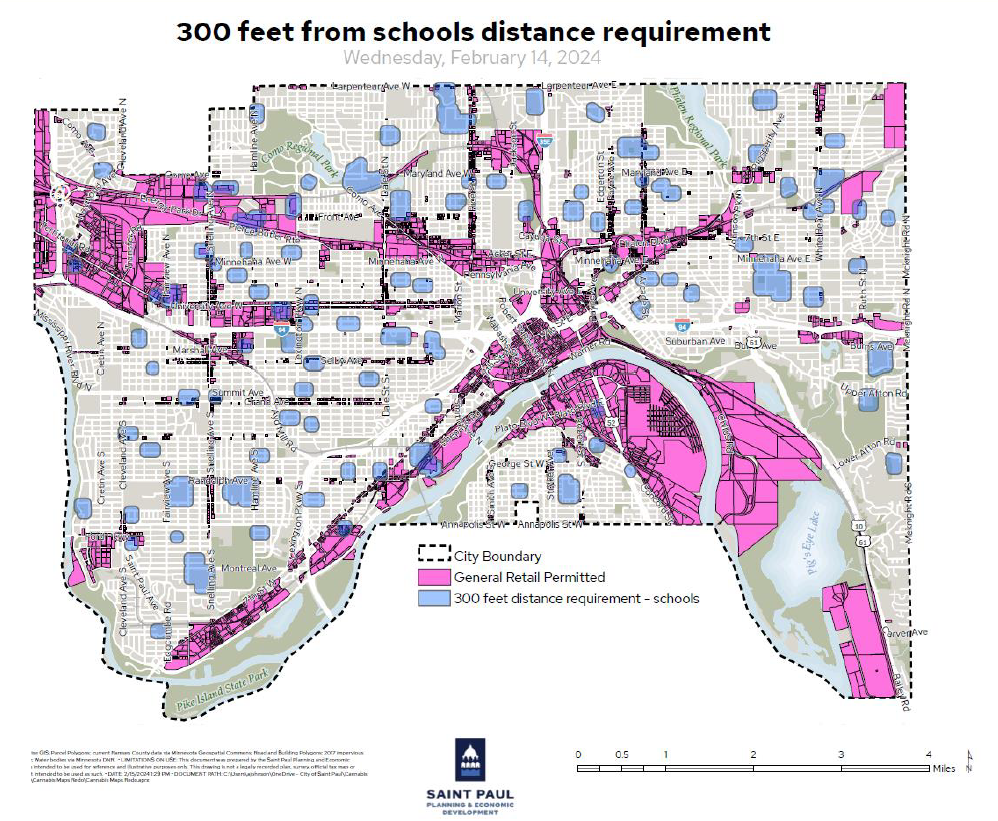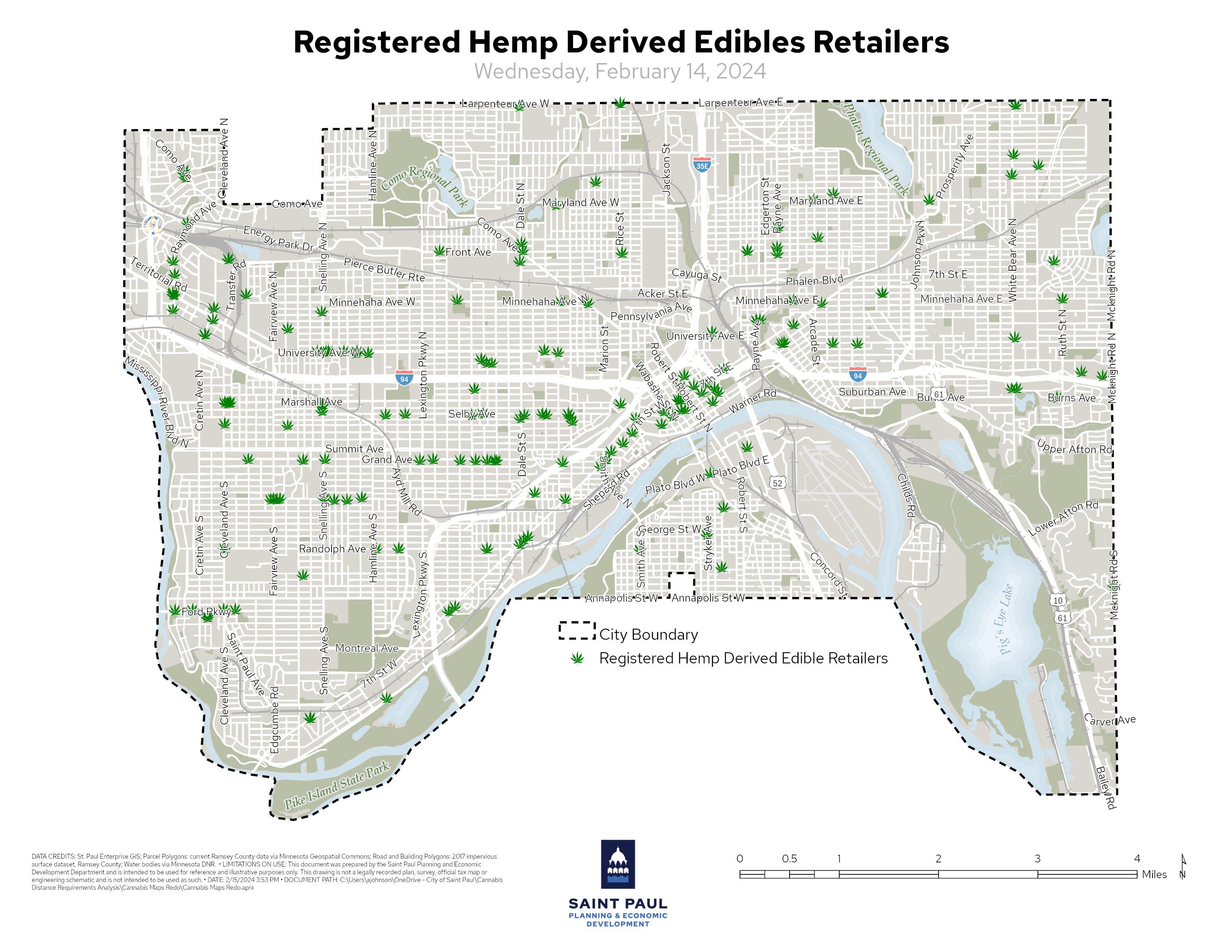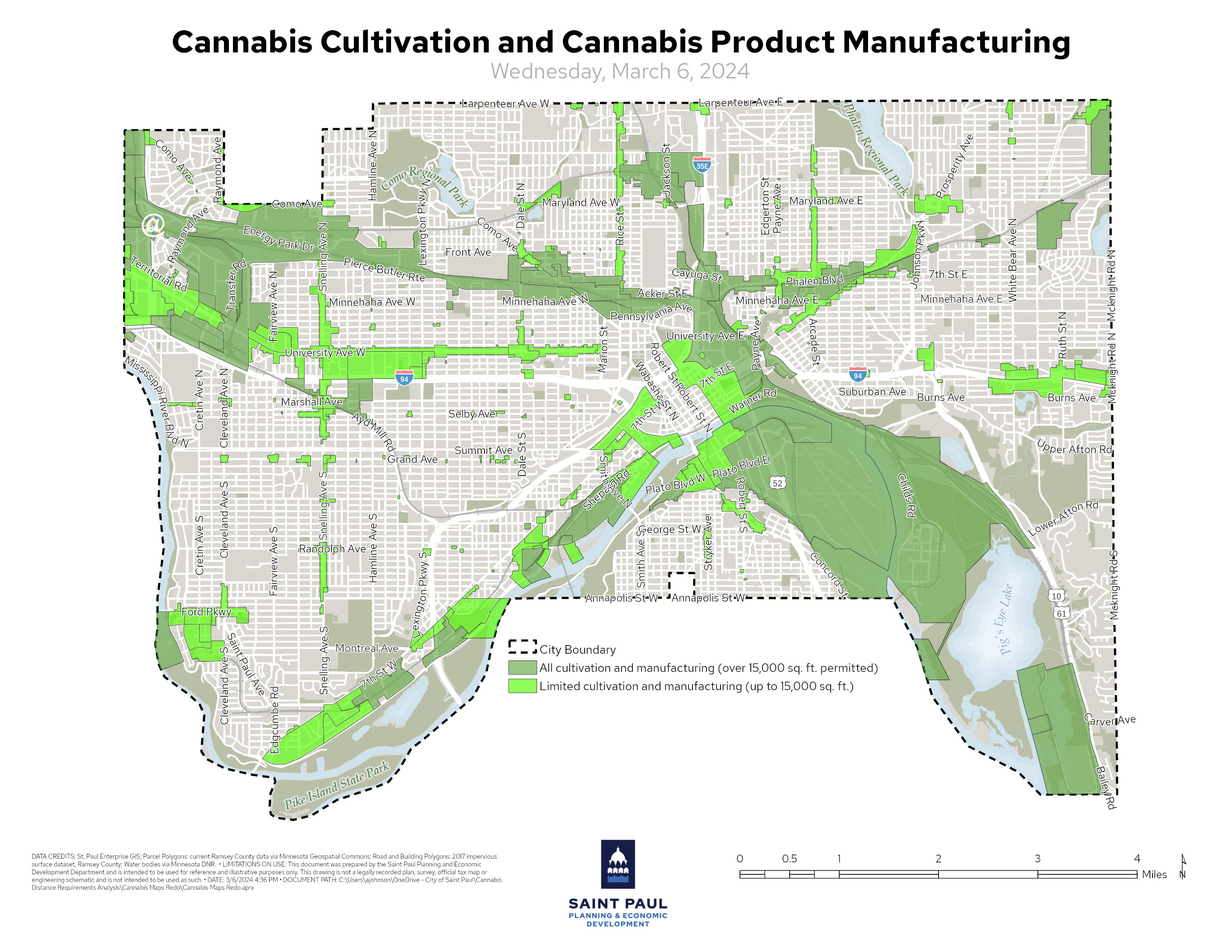Saint Paul Adopts Zoning Amendments for Cannabis-Related Businesses
Today, the City Council unanimously approved zoning amendments that outline where different types of legal cannabis operations can locate in Saint Paul. These regulations will help support the local economy, promote public safety, and mitigate potential negative impacts to neighborhoods.
"This is a critical step forward toward establishing a vibrant and responsible cannabis industry," said Mayor Melvin Carter.
“I am proud of the thoughtful zoning amendments passed by the City Council today, which set the table for an equitable and economically beneficial local cannabis industry in our capital city,” said Council President Mitra Jalali. “Saint Paul is leading the way in modeling how cities can approach the opportunity of this landmark new state law.”
“I am committed to making sure that Saint Paul’s zoning will move us forward to supporting the local economy and safety for our neighborhoods,” said Ward 6 Councilmember Nelsie Yang.
The newly approved zoning changes create a framework for the establishment and operation of cannabis retail locations, cultivation facilities, and processing centers within Saint Paul.
“Businesses need certainty on zoning so they can decide where to invest,” said Nicolle Goodman, the City’s Director of Planning and Economic Development. “It was imperative to the Mayor and City Council that staff bring forward these zoning amendments now, so potential entrepreneurs can investigate possible locations to support their application for a state license.”
Details
City planning staff examined existing land uses in the zoning code to accommodate and regulate the 16 cannabis business license types from the Minnesota State Office of Cannabis Management (OCM). The adopted amendments focus on permitted locations, operational impacts, and separation requirements for different types of businesses:
- Cannabis retail sales are allowed in areas zoned for commercial and mixed-use. Cannabis retail can locate anywhere in downtown and must be 300 feet from schools in all other parts of the city. Retail locations of over 15,000 square feet will require a conditional use permit (CUP), except in districts zoned as industrial. These retailers must have cameras and cannot share a common entrance with tobacco product shops.
- The majority of businesses already carrying hemp-derived edible products can continue to operate as usual in Saint Paul’s mixed-use and commercial zoned areas. These businesses can only sell lower potency hemp-derived products and cannot also carry cannabis.
- Limited cannabis production and cultivation (under 15,000 square feet) can happen in mixed-use, commercial, and industrial districts. Commercial outdoor cultivation, such as rooftop growing operations, will require a CUP.
- Industrial zoned districts are the only areas of Saint Paul where industrial scale and cultivation (over 15,000 square feet) business can locate.
View the licensing and zoning table for more detailed descriptions of what each state license type allows the license holder to do, and which zoning districts cannabis businesses can operate in across Saint Paul. To check zoning for a specific property, please refer to the online zoning map.
The amendments will go into effect later this fall, so local businesses can identify potential locations before the OCM begins the licensing process in 2025.
“Saint Paul is dedicated to fostering a vibrant and inclusive economy. The cannabis industry represents a huge opportunity for aspiring entrepreneurs to grow and thrive in our community,” said Director Goodman. “These zoning amendments highlight a thoughtful approach to integrating a new industry into our city in a way that aligns with our values and priorities.”
Maps


